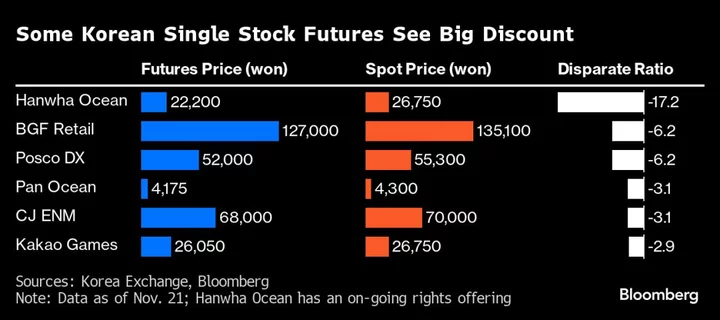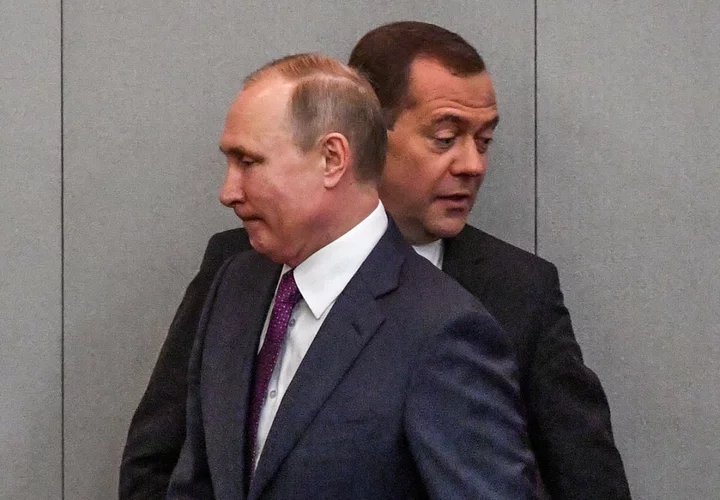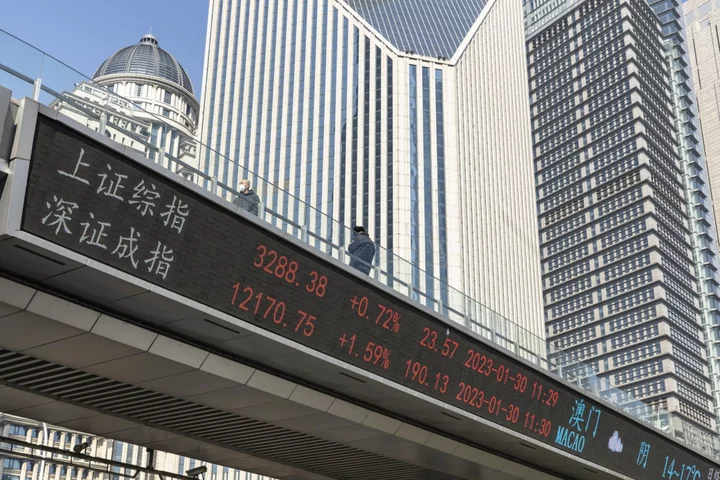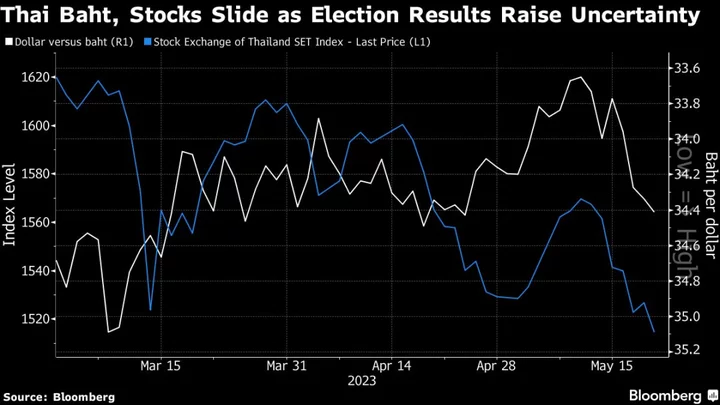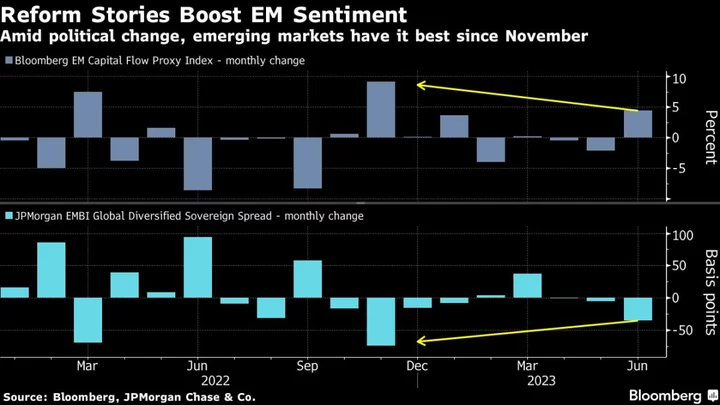South Korea’s equity market may be heading for more turbulence as investors place bearish bets on single stock futures — an unintended consequence of last month’s short-selling ban.
Futures of some Korean companies are trading at a discount of as much as 6% to their spot prices as investors try to hedge potential risks, according to exchange data. The move risks driving up volatility in the market, adding to challenges for investors seeking steady returns after the surprise crackdown on selling of borrowed shares.
The discount in futures prices to spot “can be traced back to the absorption of short selling demand,” Clepsydra Capital analyst Sanghyun Park said. “We anticipate a surge in aggressive arbitrage trading involving futures/spot, ultimately contributing to heightened price volatility in the spot market.”
Offshore funds are driving the selloff in single stock futures, selling 185 billion won ($142 million) since the ban, according to exchange data. Several contracts that are now trading at a discount were also the target of shortsellers, who consist primarily of overseas investors.
The single stock futures of BGF Retail Co. and Posco DX Co. expiring December traded at least 10% cheaper to their spot prices earlier this month before paring losses to 6% as of Nov. 21, exchange data show. Before the prohibition on short selling, only one company — Hanwha Ocean Co. — saw a heavy discount amid an ongoing rights offering.
The government banned the trading strategy to shield retail investors ahead of next year’s polls. Volatility in the benchmark Kospi Index spiked to the highest since 2020 following the move, spurring concerns about the nation’s appeal to global investors and its bid to seek developed-market status in MSCI Inc.’s indexes. The swings have since eased but remain higher than most peers.
“There is a possibility of increased volatility in the cash market on a day of futures expiry as there could be a large volume of program sell orders,” said Lee Hyo Seob, senior research fellow at Korea Capital Market Institute.
Read: Short-Sellers Outlawed in South Korea Target ADRs as Alternative
Some analysts caution that using futures to hedge risks isn’t always an ideal option for funds seeking alternatives during the shorting ban as it comes with higher costs and other risks.
“There is a risk of loss,” said Samsung Securities Co. analyst Jun Gyun. Single stock options would be a better choice than selling futures, he said.

